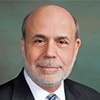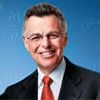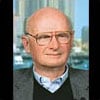
 Tim Berners-Lee
Tim Berners-Lee
Inventor of the World Wide Web
2016 Recipient of the Melamed-Arditti Innovation Award
Tim Berners-Lee invented the World Wide Web in 1989. He founded and Directs the World Wide Consortium (W3C) the forum for technical development of the Web. He founded the Web Foundation whose mission is that the WWW serves Humanity, and co-founded the Open Data Institute in London. His research group at MIT's Computer Science and AI Lab ("CSAIL") plans to re-decentralize the Web. Tim spends a lot of time fighting for rights such as privacy, freedom and openness of the Web.
A graduate of Oxford University, Tim Berners-Lee invented the Web while at CERN, the European Particle Physics Laboratory, in 1989. He wrote the first web client and server in 1990. His specifications of URIs, HTTP and HTML were refined as Web technology spread.
He is the 3Com Founders Professor of Engineering in the School of Engineering with a joint appointment in the Department of Electrical Engineering and Computer Science at the Laboratory for Computer Science and Artificial Intelligence ( CSAIL) at the Massachusetts Institute of Technology (MIT) where he also heads the Decentralized Information Group (DIG). He is also a Professor in the Electronics and Computer Science Department at the University of Southampton, UK.
Tim is the Director of the World Wide Web Consortium (W3C), a Web standards organization founded in 1994 which develops interoperable technologies (specifications, guidelines, software, and tools) to lead the Web to its full potential. He is a Director of the World Wide Web Foundation which was launched in 2009 to coordinate efforts to further the potential of the Web to benefit humanity.
In 2011 he was named to the Board of Trustees of the Ford Foundation, a globally oriented private foundation with the mission of advancing human welfare. He has promoted open government data globally and is a member of the UK's Transparency Board. He is President of London's Open Data Institute.
In 2001 he became a Fellow of the Royal Society. He has been the recipient of several international awards including the Japan Prize, the Prince of Asturias Foundation Prize, the Millennium Technology Prize and Germany's Die Quadriga award. In 2004 he was knighted by H.M. Queen Elizabeth and in 2007 he was awarded the Order of Merit. In 2009 he was elected a foreign associate of the National Academy of Sciences. He is the author of "Weaving the Web".
On March 18 2013, Tim, along with Vinton Cerf, Robert Kahn, Louis Pouzin and Marc Andreesen, was awarded the Queen Elizabeth Prize for Engineering for "ground-breaking innovation in engineering that has been of global benefit to humanity."
"The goal of the Web is to serve humanity. We build it now so that those who come to it later will be able to create things that we cannot ourselves imagine."
- Tim Berners-Lee
"TimBL invented it and then gave it to the world instead of patenting it and making it private. The impact his invention has had on the world over the last quarter century has been incredible."
- Robert Merton, Member, CME Group Competitive Markets Advisory Council
The CME Group Melamed-Arditti Innovation Award
The CME Group Melamed-Arditti Innovation Award is the signature program of the CME Group Center for Innovation. The award honors an individual or group of individuals whose innovative ideas, products or services have created significant change to markets commerce or trade. The award strives to celebrate innovation in action — not only the creative idea, but also the impact that practical application of the idea has made on improving the economic well-being of individuals, an industry or a nation.
CME Group named this award to honor Leo Melamed for his revolutionary achievements in introducing financial futures instruments to futures markets in 1972, and Fred Arditti, whose achievements in the 1980s developing CME's eurodollar interest rate and weather futures significantly advanced the management of risk in the futures industry. These innovations were instrumental in helping CME Group become the world’s leading derivatives marketplace.
 Leo Melamed is recognized as the founder of financial futures. As Chairman of Chicago Mercantile Exchange (CME), he led the exchange's launch of currency futures with the creation of the International Monetary Market (IMM) in 1972—the first futures market for financial instruments. The introduction of financial futures paved the way for CME's launch of futures contracts on U.S. Treasury Bills, Eurodollars, and stock indexes in the decade that followed. In 1986, Melamed conceptualized CME’s Globex system, the first electronic trading platform for futures and options, and was instrumental in its launch in 1992. Currently Chairman Emeritus of CME Group and Chairman of Strategic Steering, Melamed continues his leadership role to help CME Group advance the world economy.
Leo Melamed is recognized as the founder of financial futures. As Chairman of Chicago Mercantile Exchange (CME), he led the exchange's launch of currency futures with the creation of the International Monetary Market (IMM) in 1972—the first futures market for financial instruments. The introduction of financial futures paved the way for CME's launch of futures contracts on U.S. Treasury Bills, Eurodollars, and stock indexes in the decade that followed. In 1986, Melamed conceptualized CME’s Globex system, the first electronic trading platform for futures and options, and was instrumental in its launch in 1992. Currently Chairman Emeritus of CME Group and Chairman of Strategic Steering, Melamed continues his leadership role to help CME Group advance the world economy.
 Fred Arditti developed futures contracts that transformed how businesses and individuals manage risk. Most notably, in 1981 he architected CME Eurodollar futures, the world's most actively traded futures contract today. Later, he was instrumental in strengthening in light of intensive competition in the new century from domestic and international markets. It was during this time that he originated weather futures. After his time at CME, he taught courses in futures and options while serving as a professor of finance at DePaul University in Chicago, as chairman of the University of Florida's Economics Department, and as a visiting professor at several institutions. His book “Derivatives” is the definitive textbook on the subject.
Fred Arditti developed futures contracts that transformed how businesses and individuals manage risk. Most notably, in 1981 he architected CME Eurodollar futures, the world's most actively traded futures contract today. Later, he was instrumental in strengthening in light of intensive competition in the new century from domestic and international markets. It was during this time that he originated weather futures. After his time at CME, he taught courses in futures and options while serving as a professor of finance at DePaul University in Chicago, as chairman of the University of Florida's Economics Department, and as a visiting professor at several institutions. His book “Derivatives” is the definitive textbook on the subject.
In 2013, the CMAC unanimously recommended that the award be renamed from the CME Group Fred Arditti Innovation Award to the CME Group Melamed-Arditti Innovation Awardin recognition of Leo Melamed's revolutionary innovation of introducing futures in financial instruments in 1972. Melamed's contributions enabled the creation of effective and efficient global risk management tools through futures markets. These innovations have been copied by financial centers around the world.














